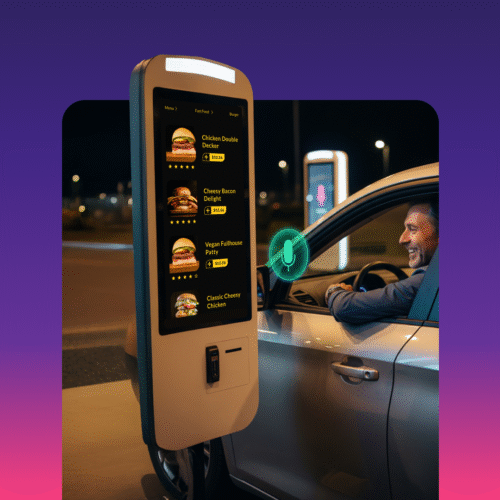As digital transformation accelerates across industries, companies recognize the importance of customer service as a crucial aspect of the overall customer experience. Customers expect efficient and personalized support across various sectors throughout their journey, from healthcare to finance to transportation. However, traditional customer service methods can be costly, time-consuming, and inefficient.
AI Customer Service Automation: The Benefits and Considerations
Thanks to AI advancements, businesses can now automate customer service tasks previously performed by human agents, including call center automation. This allows them to scale operations and provide more effective and personalized customer support.
Revolutionizing Customer Service with AI
The customer service industry is being transformed by AI. One of the most significant changes is automating routine customer support tasks. With the new breed of AI, such as Generative AI, customer service automation has advanced beyond just handling basic inquiries. Chatbots and virtual assistants powered by AI can now handle complex interactions, freeing up human agents to focus on more pressing issues. In addition, AI has enabled personalization in customer service interactions, creating a more customized experience. These advancements in AI are pushing automated service request fulfillment to new heights.
Another benefit of AI customer service automation is its ability to provide 24/7 availability. Chatbots and virtual assistants can operate around the clock, ensuring that customers can get the support they need at any time of the day or night.
Omilia, for example, worked with a leading US financial services company to improve customer experience and enhance containment through their call centers. With the new system, the company achieved 97% semantic accuracy, a 92% task completion rate, and a 9% point increase in IVR containment, reducing wait times and improving efficiency.
Another example is Vodafone, one of the world’s largest telecommunications companies, which used Omilia’s conversational AI to automate its customer service operations.
Omilia helped Vodafone handle various customer inquiries, from account management to technical support. The result was improved efficiency, reduced costs, and increased customer satisfaction.
Implementing AI for Customer Service Automation
From chatbots and IVR systems to self-service portals and feedback collection tools, there are numerous ways businesses can implement AI in their customer service operations to reduce costs and increase customer satisfaction. They include:
- Product tracking: By providing real-time updates on the shipment status, businesses can reduce the number of inquiries and improve transparency.
- Scheduling: AI-powered appointment scheduling tools can automate the booking process, allowing staff to focus on more complex tasks.
- Payment processing: Businesses can reduce errors and improve the overall payment experience for customers while safeguarding sensitive information like credit card details.
- Sales support: New tools can analyze customer data and offer personalized product recommendations based on browsing and purchase history, improving customer engagement and boosting sales.
- Feedback collection: By using AI-powered surveys and feedback tools, businesses can collect customer insights and feedback in real time, allowing them to identify areas for improvement and make necessary changes.
- Self-service: AI can provide customers with more accurate and relevant information and manage transactions such as payments, and funds transfers, freeing staff to handle more complex inquiries.
Benefits for Customers and Agents
For customers, AI-powered customer service automation can result in faster response times, 24/7 availability, and improved self-service options. With AI handling routine inquiries and requests, customers can get quick and accurate answers to their questions without waiting for a human agent to become available. This can lead to higher customer satisfaction and loyalty. Additionally, AI can help personalize the customer experience by providing tailored recommendations and solutions based on the customer’s preferences and history.
For agents, AI can help reduce their workload by handling routine tasks such as responding to frequently asked questions and directing customers to the appropriate resources. This can free agents to focus on more complex issues requiring human expertise, increasing job satisfaction and reducing burnout. Additionally, AI can provide agents with valuable insights into customer behavior and preferences, allowing them to provide more personalized and effective service.
Choosing a Conversational AI Vendor to Automate Your Customer Service
To ensure a successful implementation of a call center automation initiative, businesses must carefully evaluate potential vendors. Here are some considerations:
Evaluate the technology capabilities: Look for a vendor that offers not only advanced natural language processing (NLP) and natural language understanding (NLU) capabilities but also advanced integrated voice capabilities such as Speech to Text (STT) and Voice Biometrics (VB). In addition, make sure the vendor can handle complex conversations and provide accurate responses.
Industry-specific expertise: Choose a vendor with experience in your industry and offers pre-trained solutions for industry-specific use cases. This ensures the vendor deeply understands your customers’ needs and can provide tailored solutions with better performance and shorter time to market
Scalability: Ensure that the vendor’s solution can handle high volumes of interactions without sacrificing quality.
Track record: Look for a vendor with a proven track record of successful implementations with big enterprises. Check for client references and case studies to ensure the vendor has experience in delivering quality solutions.
Compliance with data privacy regulations: Choosing a vendor that complies with data privacy regulations and has appropriate security measures to keep essentials safe is essential.
How Omilia helps businesses automate their customer service with AI
Omilia provides a conversational AI platform that can integrate into call center operations to automate routine tasks and enhance the customer experience. Using natural language conversation, Omilia’s solution can provide a more personalized and efficient self-service experience, reducing wait times and improving efficiency.
Our platform provides businesses with the tools to automate tasks and enhance the customer experience across voice and text channels without requiring extensive programming know-how. Omilia’s technology offers industry-specific models and integrations with CCaaS platforms, making it easy for businesses to implement conversational AI experiences in a no-code environment. One key advantage of Omilia’s solution is its voice model specificity, which drives increased fulfillment and ease of use, making it an ideal choice for customer service automation.
With advancements in AI, companies can now automate routine tasks, allowing human agents to focus on more complex issues. This improves efficiency and provides personalized and fast support around the clock. From product tracking to payment processing, there are numerous ways AI can be implemented in customer service operations to improve the overall experience. However, choosing the right conversational AI vendor is crucial to successful implementation. By evaluating technology capabilities, industry-specific expertise, scalability, track record, and compliance with data privacy regulations, businesses can choose a vendor to deliver fast, personalized and efficient customer support. At Omilia, we provide AI-powered conversational solutions that can help companies revolutionize their call center operations and customer service.


